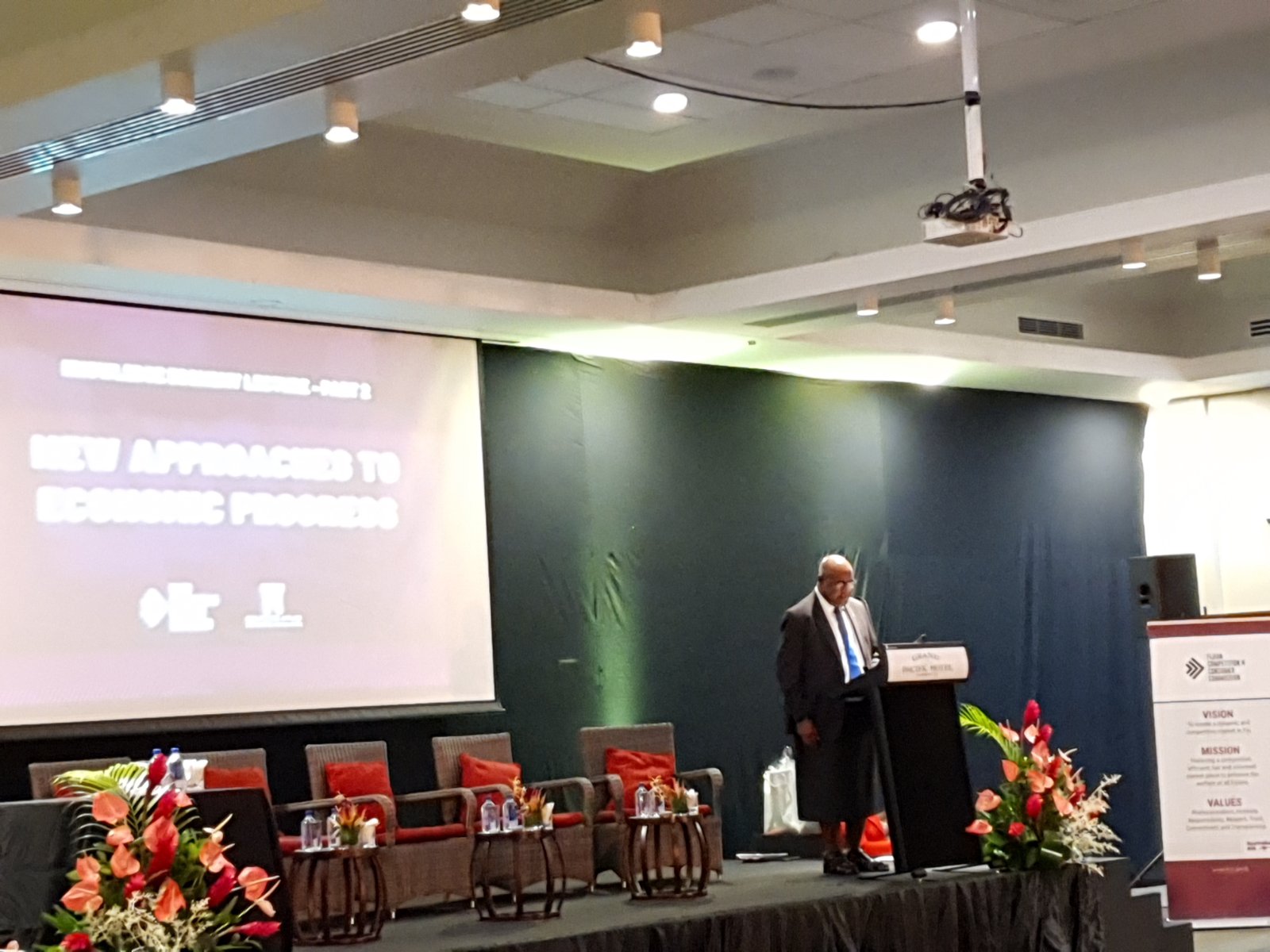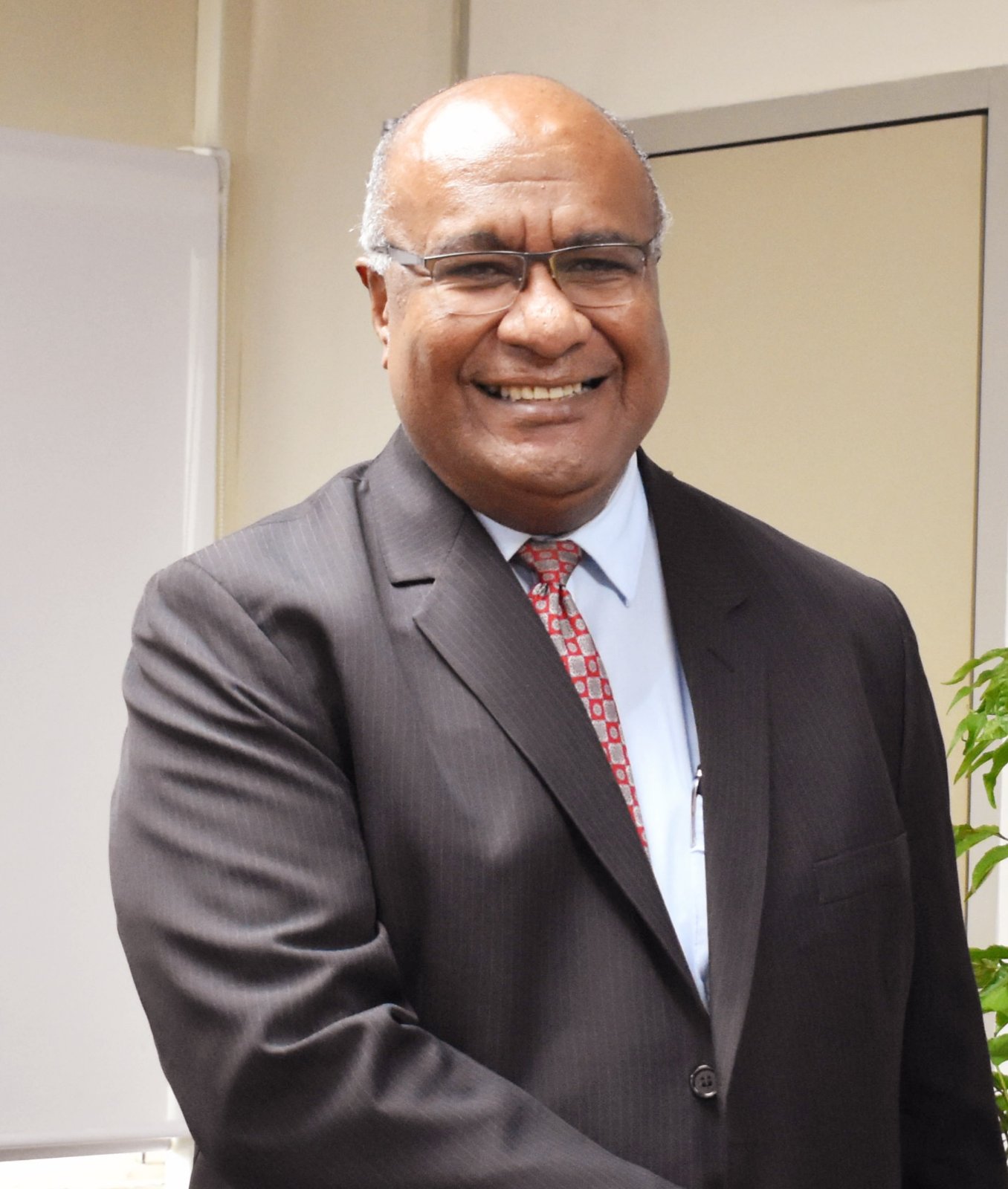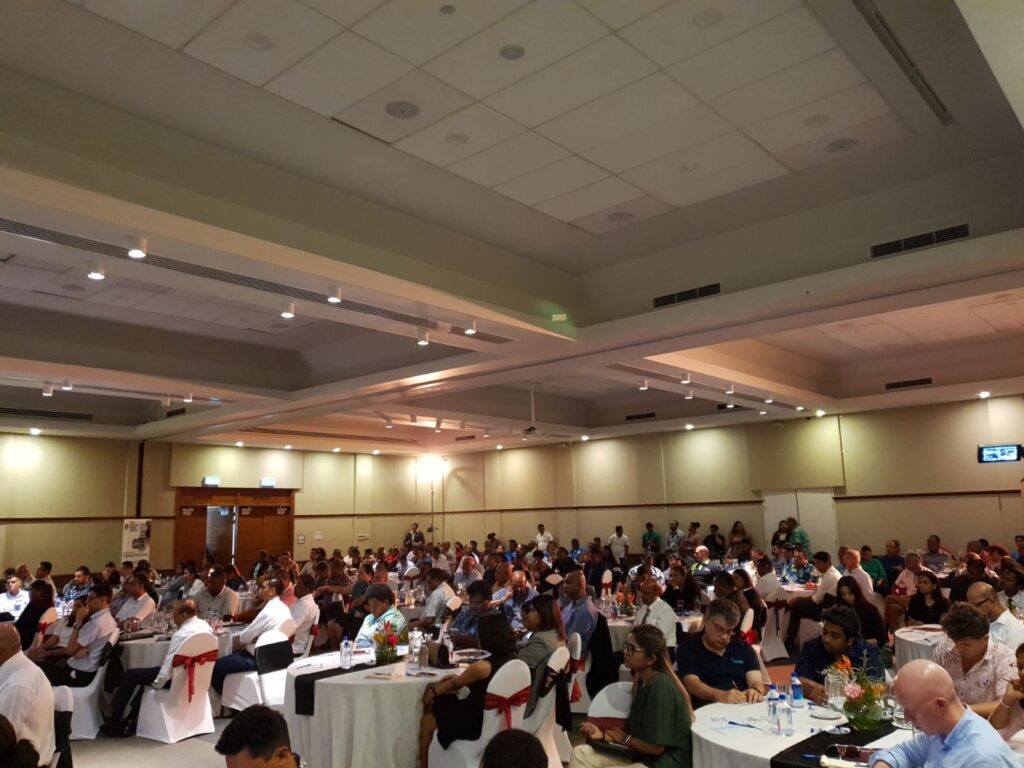Deputy Prime Minister and Minister for Finance, Hon. Professor Biman Prasad,
Asia-Pacific Applied Economics Association (APAEA), Professor Paresh Narayan,
CEO-Fijian Competition and Consumer Commission, Joel Abraham,
CEO-Consumer Council of Fiji, Seema Shandil,
CEO-Fiji Commerce and Employers Federation, Kameli Batiweti,
Distinguished Presenters and Panelists,
Members of the Media,
Ladies and Gentlemen,
Bula Vinaka and a very good afternoon to you all.
Today, I am absolutely delighted to join you all in this important Forum. And I thank FCCC for organising this Forum and for inviting me to speak about something that is central to Fiji’s economic growth and prosperity.
It is so refreshing to start the new year with exchanging views and new ideas in progressing our economy. Ideas matter for better economic policies. But these ideas are ultimately a means to an end. It’s about using appropriate and right policies to making people’s lives better: creating jobs, expanding opportunities, and promoting sustainability.
Ladies and Gentlemen,
The theme for today’s public lecture is “new approaches to economic progress”.The backdrop of this question is, where do we want Fiji to be in another 10 or 20 years time? But what tomorrow’s Fiji will be like, is for all Fijians to work towards and create together.
To strengthen our economic resilience and remain competitive in the face of economic challenges, we need to identify new opportunities and build new engines of growth. This includes developing policies to trigger transformational efforts.
In order to overcome obstacles of the 21st century and better understand the needs of Fiji, we need to see things with a fresh perspective.
Ladies and Gentlemen, let me now share my thoughts on these strategies for Fiji:
- Ease of Doing Business
We all know the importance of investments and its centrality to Fiji’s economic growth and sustainable development. It has the potential to translate into widespread benefits, such as enhancement of productive capacities, job creation and improvements in the standard of living, and transfer of technology and know-how.
It is imperative that we make doing business easier. However, three weeks since I have taken Office and I have had several meetings with key stakeholders. I have noticed that there are still several bottlenecks – investors face multiple bottlenecks that discourages new investments and re-investment activities in Fiji. And this is hindering major investment projects. We need to resolve these issues – we need to harmonise and stremaline processes to remove bottlenecks. This is one of my top priorities and I am currently working out ways to solve the issue of unnecessary regulatory compliance and administrative requirements by approving agencies.
- Trade and supply chains
We aim to increase Fiji’s trading volume by diversifying Fiji’s exports so that it is spread across a large number of products and trading partners. In order to do this, it is vital to build competitive advantages and this is possible by redirecting incentives and initiatives. This will include initiatives and programmes to build capacities in MSMEs to engage in cross-border trade.
It is also absolutely important for us to look into the diversification of supply chains to better prepare for and mitigate the effects of disruptions in the future. In recent years, global supply chains have experienced a series of disruptions and have contributed to broader economic uncertainty. Overreliance on a single source of supply was greatly tested during the COVID-19 pandemic, where countries were unable to access critical supplies. It makes more sense to diversify supply chains through nearshoring or by exploring other countries that offer an economically viable alternative. By spreading sourcing, production, and shipping of goods and services across economically and geographically diverse nations, the risk of a single country shocking global supply chains due to natural or political factors is significantly lowered.
It is also important to have risk management and continuity plans in place that involve the private sector, in order to avoid supply chain disruptions. New threats, such as cyber-ransom attacks, are emerging alongside more traditional and longer-acknowledged supplier risks, such as supplier bankruptcy.
Transport and logistics services are the backbone to trade, hence, investments in improving transport infrastructure are absolutely critical to ensuring that supply chains are disrupted. When we talk about logistics, the current challenges with the global sea freight system comes to the mind of every business. International shipping rates are at an all-time high. Although the COVID-19 pandemic is to blame, Fiji businesses have been reeling with these problems since pre-COVID times. Hence, it is vital to explore innovative approaches to resolving long standing issues such as these.
One mechanism is exploring modern and innovative trade and economic cooperation agreements that address non-tariff barriers and trade logistic issues, which exacerbate the cost of doing business. Indo-Pacific Economic Framework (IPEF) is an example of such a platform that has the potential to address these issues and challenges of the 21st century. IPEF is a US-led initiative that Fiji is currently negotiating. It is a modern and forward looking trade agreement, which will evolve as a powerful economic bloc that addresses modern barriers to trade such as logistics, connectivity, compatible systems and border facilitation and address infrastructure gaps. IPEF, more so than any other traditional free trade agreement, will also leverage Public Private Partnership and Business-to-Business initiatives and has an opportunity to deliver FDIs and technology transfer.
- Import substitution through strategic development of agricultural sector
In today’s day and age, every country needs both, economic and food security. Therefore, import substitution is key to restoring and creating food independence in Fiji. Fiji is already self-sufficient in production of pork, canned meat and chicken. The business model can be studied and replicated to other agricultural livestock and crops.
Economic models like sustainable smallholder integration have been seen as a successful approach by large businesses such as Goodman Fielder and British American Tobacco – providing raw materials and capacity building to farmers to support their business as a whole. These types of models reduce the uncertainty related to farming activities. It aims to integrate smallholders into commercial value chains in response to this broad spectrum of risks and trade-offs.
- Manufacturing
There is potential to position Fiji as a regional business and innovation hub for manufacturing. To do so, we will need to attract frontier investments and strengthen our overall ecosystem for doing business. One huge potential area for Fiji is becoming a regional manufacturing hub for pharmaceuticals, to create seamless access to affordable medications (due to reduction in freight component) for the Pacific Island region. Another potential is setting up assembly lines for renewable energy generating technologies, such as solar panels.
Near-shoring is another important area to explore because Fiji offers a cost effective alternative for countries like Australia and New Zealand. IT (Information Technology) nearshoring is a booming industry globally. Fiji can introduce the right type of tailor made incentives to enable foreign companies to relocate information technology related tasks in Fiji. For example, software development for overseas companies in Fiji.
In addition, with the viability of several companies at risk as a result of the COVID-19 pandemic, companies focusing on revenue generation and outsourcing non-core functions. Fiji has already started realising benefits from providing outsourcing services, 4,000 new jobs were created which has doubled post-pandemic. This is one of the emerging industries that continues to grow.
- Encouraging more Co-operatives and SMEs
Co-operatives and Small and Medium Enterprises are critical to Fiji’s economy that drives innovation, generates economic activity and creates employment in emerging markets.
As the Minister responsible for Co-operatives and SMEs, the greater part of my undertaking is to raise the productivity of Co-operatives and SMEs to obtain return on investments. But with raising productivity comes handholding. Therefore, business advisory services and business training programmes remain vital to promote a resilient and sustainable business – and that is what we aim for.
Ladies and Gentlemen- helping SMEs, will help Fiji build back better and stronger– a post pandemic recovery backdrop which everyone present here today has equal part to play in. If anything, the pandemic has taught us the value of the digital economy and the noteworthiness of e-commerce platforms. This opened up numerous opportunities such as reaching a wider consumer base and healthy competition in the consumer market.
Ladies and Gentlemen,
To gain ground on the improvements and solutions to shape SMEs in the digital age, it was all-important for me to meet the representatives of this very industry – the Fiji SME Business Owner Network, who presented constructive feedback on where our assistance as a Government is required.
I’m looking forward to having more meetings and discussions with various segments of the SMEs industry in the coming days. Therefore, I wish to ensure our SMEs community that we are here to listen and improve the business environment.
Ladies and Gentlemen,
Whilst we recognise the demand and potential advantages it offers to SMEs, hurdles need to be addressed as more SMEs embrace digital platforms. One of the main components will look into assisting SMEs to adapt and incorporate online trading and digital payment platforms.
Having SMEs on digital platforms also requires building knowledge and creating awareness of regulatory and compliance matters namely on unfair business practices and inadequate online dispute resolution.
Ladies and Gentlemen,
I have a big task in front of me -that is to recover and rebuild in a way that creates sustainable economic growth and economic progress – alongside tackling the adverse impact of climate change, pandemic and exogenous shocks caused by geopolitical tensions.
Therefore I will need your support and recommendations that my Ministry can use whilst drawing policies.
I will bring all my knowledge, passion, experience and persistence to the important task at hand, building upon existing policies, setting up improved direction to Fiji’s trade and investments and achieving results.
I am conscious that expectations are high and I shall do my utmost to move Fiji forward.I look forward to discussing more ideas and hearing your thoughts after the formal event.
With these words – Vinaka Vakalevu and Thank you.




